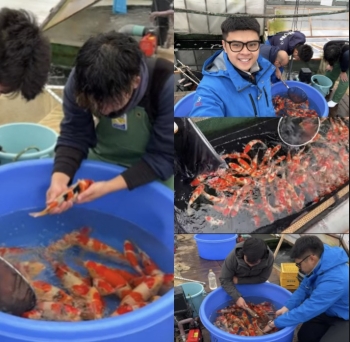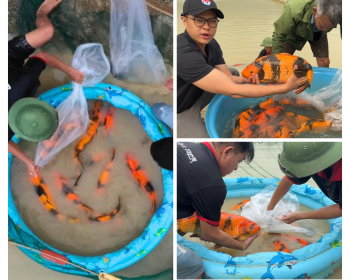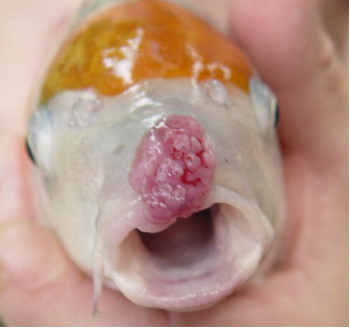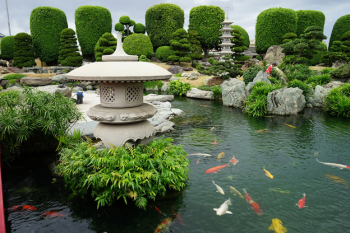1. Symptoms when koi fish have shagging disease:
When koi fish suffer from scaly disease at first, there will be no specific signs, only if you look closely, you will see that the area of the fish is foamy, the fish is often lazy to swim or swim near the surface of the water where there is a lot of oxygen. Sick fish also show signs of abstinence and lack of flexibility. The most obvious symptom in scab disease is bulging eyes, an oval bulging abdomen, and scales that tend to ruffle like pine nuts.
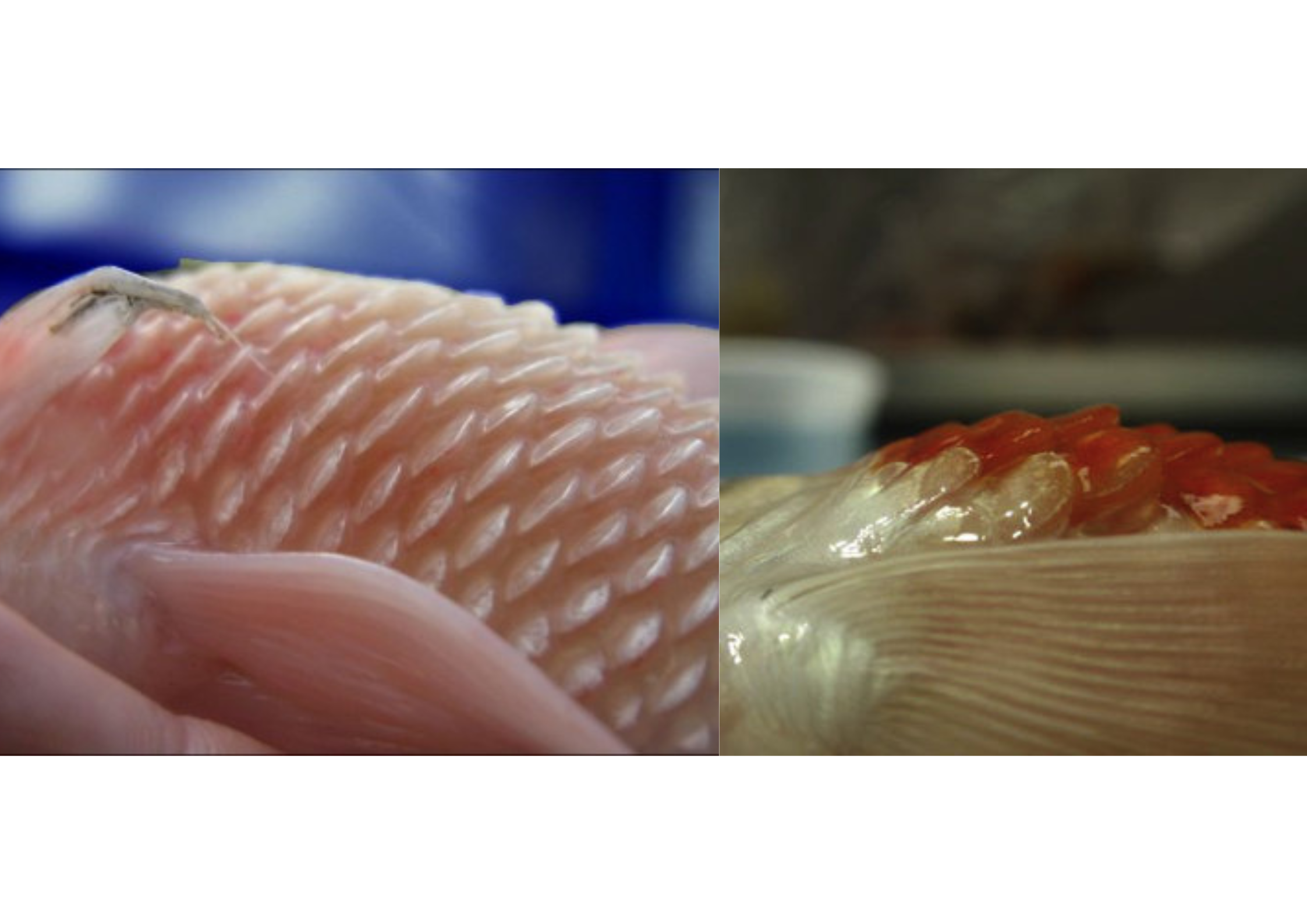
Scaly disease in koi fish
2. Causes of ruffled scales in fish:
Shaking koi can be caused by a variety of causes, including:
- Bacterial infections:
When koi fish become infected, their bodies will react by producing large amounts of waste and water in the body will be trapped, leading to edema and ruffled scales.
- Bad environmental conditions:
Unsafe water environments can cause stress for koi and lead to ruffled scales. Dirty water does not directly lead to ruffled scales in fish, but it does create a favorable growing environment for pathogens that harm koi.
- Improper diet:
Lack of nutrition or an unbalanced diet can make koi's skin weak and vulnerable, and the fish's immune system will not be able to function normally. Therefore, it is necessary to give your Koi fish a nutritious diet to ensure a balanced, healthy immune system.
- Other causes:
Other causes include trauma, ingress of environmental aggressors such as chemicals or excessive sunlight. Too much fish in the lake can also increase the risk of disease and be contagious, affecting other fish
3. How to cure and prevent scaly disease in koi:
When koi fish experience symptoms of scab disease, the first thing you need to do is to isolate the fish in a separate tank and feed the fish fasting during the treatment of the koi fish. You can follow the steps as below:
- Salt treatment: The most important thing to treat scaly disease in fish is to take a salt bath with a concentration of 5-6kg/1m3 of water/5 minutes and repeat for 3-5 days in a row, 1-2 times a day, until the condition of the fish improves.
- Drug treatment: besides regular salt baths for the fish, you can use some antibacterial drugs to support the treatment of the fish. There are many antibacterial types on the market that support the treatment of scab disease, you should choose drugs with a clear origin and use according to the manufacturer's instructions.
- Improve water quality: Regularly change the water to periodically check water parameters such as pH, dissolved oxygen, ammonia, nitrite ... Water conditions must ensure the following conditions: pH from 7.5 to 8.5, temperature 20-27°C, Minimum oxygen content is 2.5mg/L.
- Provide adequate nutrition: Koi fish need to be provided with adequate nutrition to strengthen the immune system and prevent diseases. Choose high quality food and ensure to provide enough nutrients such as protein, fat from and vitamins such as A, E, D, C, K or contain spirulina algae, Krill meal and amino
Periodically check the condition of the fish: It is recommended to inspect fish periodically in order to detect and treat diseases in time. If unusual symptoms are detected on koi, it is necessary to contact specialists for advice and proper treatment.
A note for you: When detecting that your Koi fish has the above symptoms, you should seek help from koi experts for direct advice and outline clear treatments that need to be selective online information carefully, avoid consulting too many ways, Applying too many ways will reduce the healing performance of the fish, it is more dangerous than letting the disease last a long time, the fish will become infected and die.
Severe ruffling of scales is difficult to treat and in most cases the fish will not recover. However, if the symptoms of ruffled scab are detected early and proper treatment is taken, the Koi will be more likely to make a full recovery. Good luck

